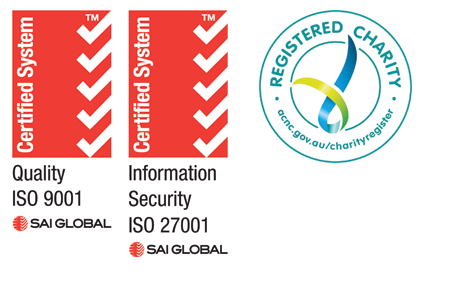Looking back and looking forward
By Christopher Carter, NWMPHN Chief Executive (CEO)
Pictured: NWMPHN Chief Executive, Christopher Carter. (Image credit: Sevil Kaya)
This annual report marks the passage of a decade since NWMPHN was created.
You’ll find some reflections on that from me and some of the longest serving members of the team elsewhere in this report. From one perspective, however, it’s interesting to see how much the role of primary health networks has changed over the past 10 years.
Most of these changes have been gradual, reflecting the slow but relentless shifts in the balance between health services and demands. A few, though, have been sudden and rapidly transformative.
Underpinning all of them, however, is a single quality, hard-won and seriously protected: trust.
When primary health networks were first created, there was a period of intense activity and discussion in the creation of our relationships between the federal and state departments of health, relevant ministers and the broader health sector. All primary health networks were building new structures, forging new relationships, testing new boundaries.
Trust built slowly, and had to be earned.
After a few years, things settled down a bit. Our roles were better defined, and we entered a consolidation period. Our relationships with senior stakeholders were sometimes personality-dependent, and turnover of senior staff in government and service provider sectors was high. This made our progress sometimes a bit stop-start, but nevertheless governments maintained a strong commitment to the strength and the spirit of primary health networks.
The trust so doggedly built up stood us in good stead.
And then came the pandemic. This was a real pivot for us and our 30 sister primary health networks. Federal and state governments saw how quickly we were able to respond to the health crisis in agile fashion. We were fuelled by deep understanding of our catchment and able to translate information into meaningful action and support for the primary health sector and local communities.
The response to the pandemic really demonstrated the proof-of-concept for primary health networks. The result was that governments really took on the value proposition and saw not only our rapidly mobilised and adaptive capabilities, but also our potential for expansion.
With our value to the sector, to governments, and to the public well established, primary health networks are now well regarded on all fronts.
That said, our ability to innovate and deliver has not gone unnoticed, and in the most recent Federal Budget we saw a massive commitment – or recommitment, perhaps – to primary care, and a corresponding increased role for primary health networks.
It’s a significant investment into our future, and the future of health care. I am optimistic about what the next few years will bring in order to achieve health outcomes across our catchment and indeed the country.
During 2024-25 NWMPHN continued to deliver positive outcomes for the communities in its catchment, and for its funders.
We worked hard with the primary health care sector to implement new ways of working. These ranged from encouraging MyMedicare and General Practice Aged Care Incentive registration, to improving data collection and trialling multidisciplinary team care in several scenarios.
Work within communities literally stretched from cradle to grave, with paediatric programs such as the First Thousand Days Clinic, and aged care innovations such as introducing allied health into residential facilities.
As always, we have been kept well informed by our expert advisory groups, clinical and community councils, and feedback from clinicians and members of the public. And as ever, we have been well governed by our Board.
I thank everyone involved in the multiple processes that make up the work of our organisation, and look forward to seeing the fruits of our work continue to bolster access and equity for across our region and beyond.





